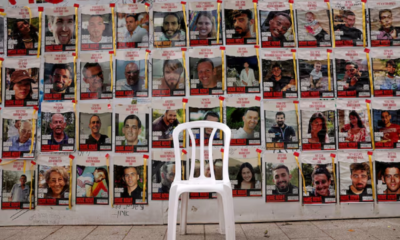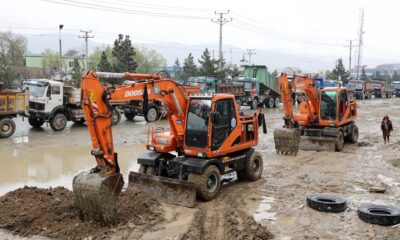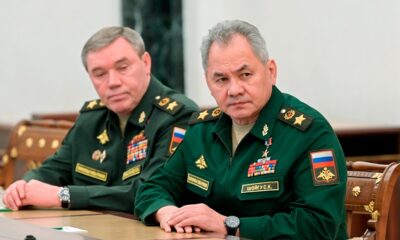Latest News
IEA criticizes Pakistan for closing Torkham crossing
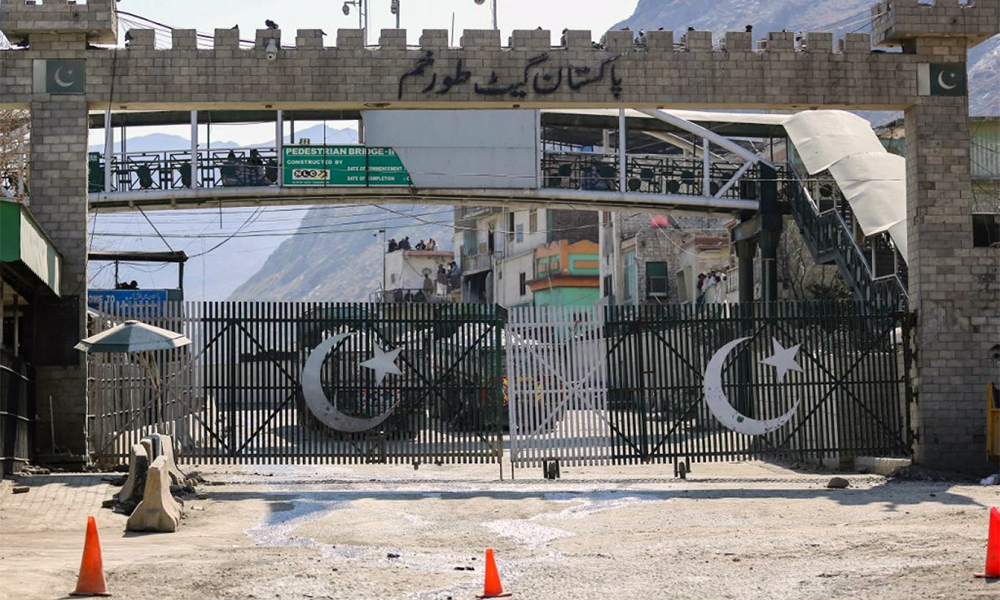
The Islamic Emirate’s foreign ministry said late Saturday in a statement that the ongoing closure of Torkham border crossing and the firing on Afghan border guards by Pakistan troops was contrary to good neighborly relations.
The ministry said Pakistan border guards opened fire on IEA forces while they were repairing an old security outpost. The incident took place on Wednesday, resulting in the immediate closure to all traffic through the key Afghanistan-Pakistan border crossing.
“The Islamic Emirate of Afghanistan deems the closure of Torkham gate and opening of fire on Afghan security forces by the Pakistani side contrary to good neighborliness,” the statement read.
Hundreds of trucks laden with goods have been halted and traders have complained that trade is affected, resulting in millions of afghanis (AFN) in losses.
“The closure of Torkham gate can adversely affect bilateral and regional trade, and cause trade and financial losses to common mercantile class on both sides,” the statement said, adding many travelers were also stuck on each side of the border.
Disputes linked to the 2,600 km border have been a bone of contention between the neighbors for decades.
The ministry noted that there had been other incidents regarding cross-border trade recently. Earlier this month a truck loaded with figs was on route to India from Afghanistan through Wagah border, when it was set on fire near a Pakistani police checkpoint.
Trust was also undermined in an incident in Karachi port recently when Pakistani authorities stopped hundreds of containers en route to Afghanistan under the pretext of the cargo being on a “sensitive list”, the ministry said.
“Unfortunately, contrary to previous promises and commitments under international laws, the Pakistani side often creates hindrances at Karachi port and closes the doors under unjustified pretexts during the advent of Afghan agricultural crops and fruits season,” read the statement.
The ministry said that shutting the door doesn’t only affect the trade between the two countries, but also increases the distance between the brotherly people and countries, and causes hindrances and delays in the trade and transit of the entire region.
Meanwhile hundreds of travelers, including women, children and the elderly, are stranded on both sides of Torkham crossing, the ministry said.
The ministry said that Islamic Emirate of Afghanistan remains committed to resolving issues through understanding and diplomatic dialogue, considering its economy-centric foreign policy, which is based on the facilitation of trade and transit in the region.
“It (the ministry) reminds the Pakistani side that such actions are detrimental to the trade of Afghanistan, region and national economy of Pakistan, which is heavily dependent on exports in the current situation,” read the statement.
The ministry further added that the two sides should seek solutions to these problems through understanding in a bid to improve trade, transit and economy of the region, and not to allow political and other issues to undermine the economy, trade and the free movement of people.
Nangarhar media meanwhile reported that the Torkham crossing remains closed Sunday.
Latest News
Three road construction projects launched in Kabul
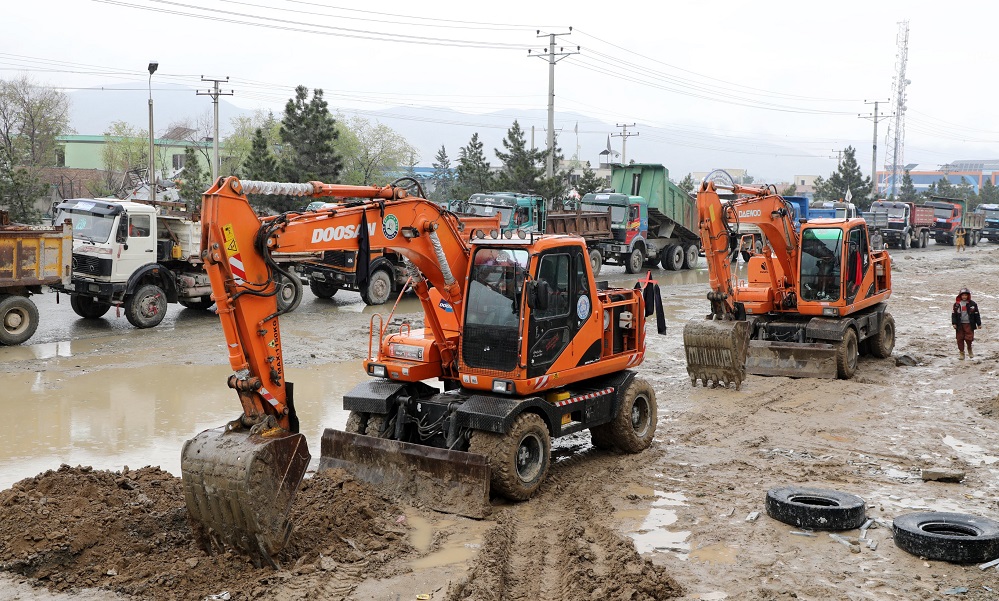
Three road construction projects worth about one billion Afghanis started in capital Kabul on Saturday.
The projects were inaugurated by Deputy Prime Minister for Economic Affairs Mullah Abdul Ghani Baradar.
The projects are: the second phase of Kotal Khairkhane road, the first part of the Shahid square to Qasaba, and the Airport road to Gumruk.
In the inauguration ceremony, Mullah Baradar said that Kabul municipality is working hard to beautify and regulate the city, and people should cooperate with the government in protecting public benefit projects.
He directed the officials of Kabul municipality to complete the mentioned projects on time and with good quality.
The second phase of Kotel Khairkhaneh road is 2.5 kilometers long and 60 meters wide. Thie road will cost 364 million Afghanis and will be completed in 20 months.
The Shahid square-Qasaba road is 1.8 kilometers long and 45 meters wide, which will be built at a cost of 175 million Afghanis in one year.
The Airport-Gumruk road is 2.7 km long and 60 meters wide, which will be completed at a cost of 407 million Afghanis in 20 months.
The projects are funded by Kabul Municipality.
Latest News
Russian defense minister says main threat for SCO countries emanates from Afghanistan
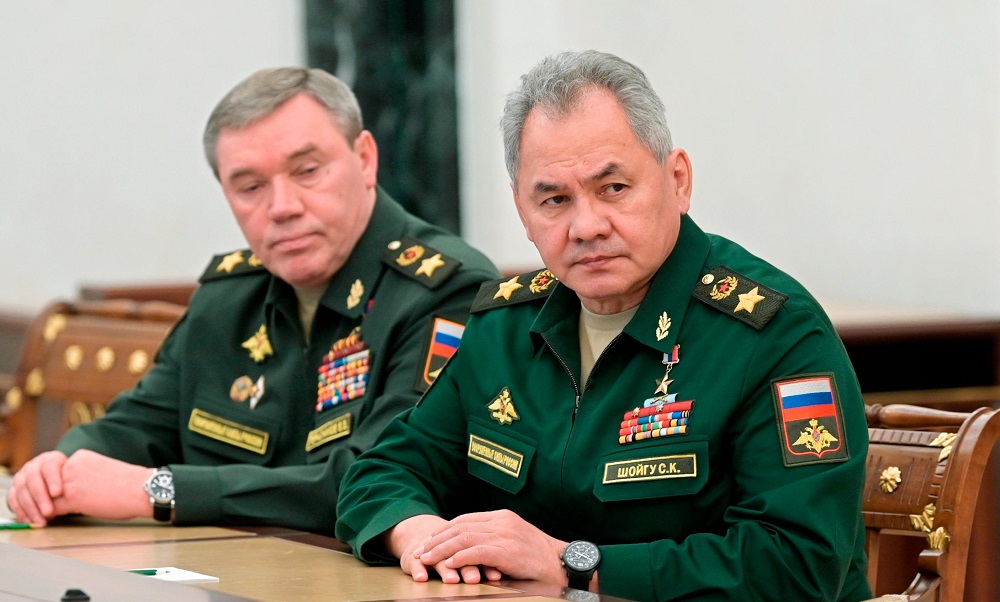
Russian Defense Minister Sergey Shoygu said on Friday that the main threat for the Shanghai Cooperation Organization (SCO) members emanates from Afghanistan where international terrorist groups find shelter due to unstable and indefinite political situation.
Speaking at a meeting of the SCO defense ministers in Kazakhstan’s capital Astana, Shoygu said Washington has stepped up efforts to restore its positions in Central and South Asia that were lost after the withdrawal of coalition troops from Afghanistan, Anadolu Agency reported.
The military chief called “unacceptable” the deployment of the American military infrastructure in the region, arguing that intentions should be regarded as “a direct threat to stability in the SCO space.”
According to him, the US is trying to impose a new security system in the Asia-Pacific region for dominance.
This comes as the Islamic Emirate has repeatedly emphasized that it does not allow anyone to pose threats to any other country from Afghanistan soil.
Recently, Mohammad Yaqub Mujahid, Acting Minister of National Defense Mohammad Yaqub Mujahid said that no destructive groups including Daesh have physical presence in Afghanistan,
Latest News
IEA calls Mujahideen Victory Day ‘freedom day’

In a statement on the occasion of the 32nd anniversary of the victory of the Mujahideen against the then communist government, the Islamic Emirate said that it is a day of freedom of the Afghan nation.
The Islamic Emirate described the coup by People’s Democratic Party of Afghanistan on 27th April 1978 as a dark day in history, as a result of which the people of Afghanistan suffered severe human and financial losses.
The statement said that the Afghan nation suffered huge casualties in their 14-year struggle against the thoughts and actions of the communists, as 1.5 million people died and millions more faced various hardships.
“After 20 years of Jihad, our country was freed from another occupation and the Islamic system was established, so the Islamic Emirate will make its utmost efforts so that the fruits of decades of sacrifice and struggle of this nation are not wasted,” the statement said.
“It was the wish of the martyrs to fully implement the Islamic system in the country, and therefore, the Islamic Emirate is trying to facilitate development and prosperity under the shadow of the Islamic system in order to realize the goals of the Afghan people’s jihads,” it added.
-

 Latest News4 days ago
Latest News4 days agoRashid Khan named AWCC’s brand ambassador
-

 World4 days ago
World4 days agoMalaysian navy helicopters collide in mid-air, 10 killed
-

 Sport4 days ago
Sport4 days agoJaiswal ton powers Rajasthan to big IPL win
-

 World4 days ago
World4 days agoNorth Korea officials visit Iran in a rare public trip
-

 Latest News5 days ago
Latest News5 days agoAt least 1,500 families affected by recent floods: IRW
-

 Sport5 days ago
Sport5 days agoMawj Sahil player scores stunning halfway line goal in 1-0 win over Jawanan Wahedi
-

 Sport3 days ago
Sport3 days ago‘Serious talent’ Fraser-McGurk bonds with Warner to light up IPL
-

 Latest News4 days ago
Latest News4 days agoUS report cites ‘significant deterioration’ in Afghan women’s rights last year




